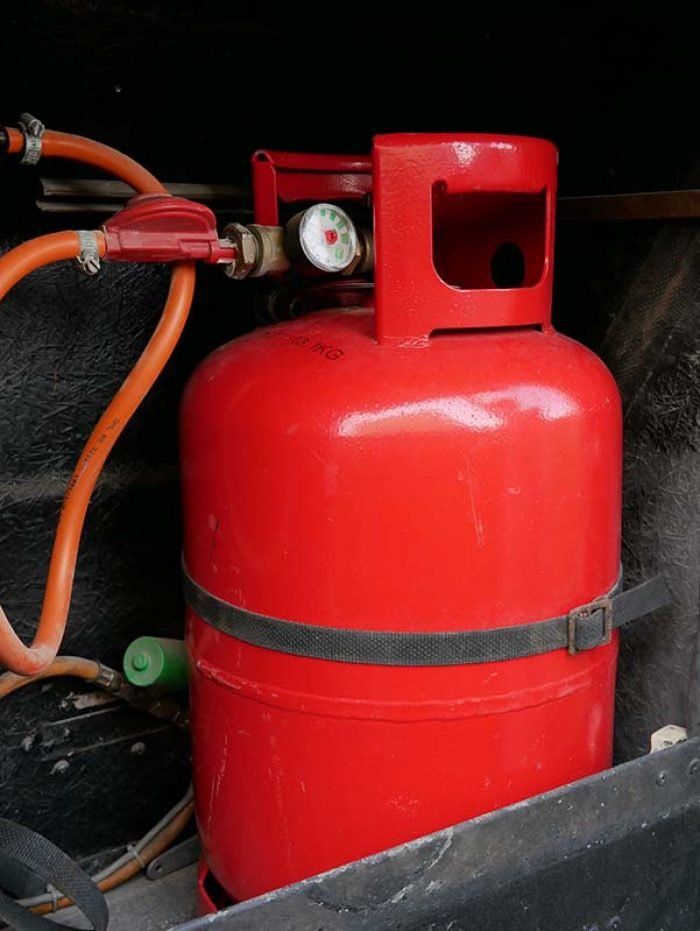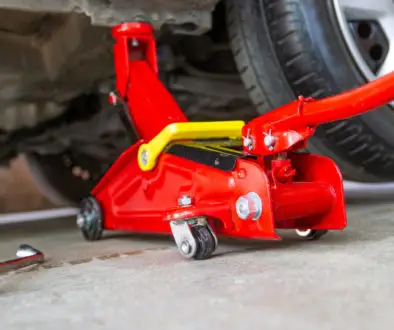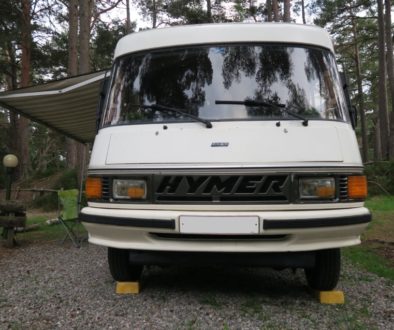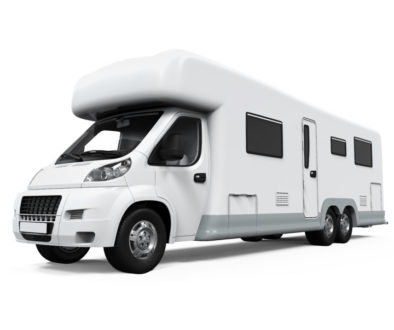How Long Does Propane Last?
Propane will provide 13.6kwh(kilowatt-hours) per kilogram. So a 1kw ring on our cooker should be able to burn for just over 13 and a half hours non stop and use 1kg of propane.
While out and about in your motorhome, RV or campervan. Its always good to know how much gas you have with you. There is nothing worse than finding an idyllic spot and run out of gas.
In most motorhomes gas will power the cooker, heating, hot water, and the fridge so you could be left hungry and cold if you run out.
We have an 11kg bottle of Propane. We use Propane rather than Butane for the reasons discussed in this blog about Propane and Butane.
It is not as difficult to work out how long the gas will last. Propane has 13.6kwh (Kilowatt Hours). So all you have to do is weigh your gas bottle subtract the weight of the gas bottle (this will be marked on the bottle, usually the top) and what you are left with is the weight of the gas in the bottle. From this, you can calculate how long the gas should last.
I say ‘should last’ as you can only really calculate using one appliance at a time with any accuracy.
For instance, our gas heater uses 6kw per hour so a kilo of gas should last two hours with the heating on full blast. It is rare to have the heating on full. Usually, it\’s quite low and comes on and off to keep the heat steady so it gets more difficult to calculate.
The cooker is a three-ring hob and each of the rings are the same size and burns the same amount of gas. They look about the same size as the ones I have in the house which burn 1kw. I have not managed to find the exact amount of gas they use but I would say 1kw would be close. So, if we take the rings at that value we should be able to burn the gas for more than 13 hours on one ring with 1kg of gas.
How Long Does Propane Last for Heating?
In our motorhome with the 6kw heater and 11kg of gas, we would have 11 x 13.6 = 149.6kw hours. So, 149.6 / 6 = 24.93 – almost 25 hours.
This means we could use a full bottle of gas in just 25 hours. Obviously it would not be on full blast for 25 hours – you would probably cook yourself. It does give you an idea of how much gas could be used.
The heating for a motorhome is fuel-hungry and this would be where most fuel would be used in the winter. Obviously the amount of gas you would use on heating will be totally dependant on the
- outside temperature
- The Wind
- The number of people in the van
- The size of the motorhome
- The overall efficiency of the insulation
Outside temperature speaks for itself, the colder it is the more gas you will use. Although most motorhomes are quite well insulated they are relatively light and the walls are thin. Saying that, I am always amazed at how warm you can be in the van even with the heating on minimum.
On a cold day, I would plan to be using the heating for at least a couple of hours depending, of course, how long you will actually be in the van.
The wind can be a big factor in the comfort of a motorhome. If it is really cold and windy that heat is going to be sucked right out of the motorhome. Expect to use more gas if the weather is cold and windy.
The number of people int the van can make a big difference to the heat in there. The colder it is the more people you want in there. Cold nights are party nights, will definitely save on the gas bill.
The size of the motorhome makes a huge difference to gas use. Some of the larger Hymers have two gas fires, a 6kw and a 3kw. Some of the smaller vans have a 3kw fire. The smaller the van the less gas you require to heat assuming the insulation is the same on comparable vans.
The newer vans have a bit more thermal efficiency. Not a lot more as even new vans are still constrained by weight so they may use more efficient types of insulation but that means they can use less and make the van a little bit lighter.
A van with very little insulation will not be as comfortable as a well insulated van. This is true for both summer and winter. You will cook in the summer and freeze in the winter.
The better the insulation the less gas you will need to keep it warm.
How long can I cook for?
Using the same calculation, if we put on the three rings of the gas cooker we would be burning 3kwh so this would give us 50 hours of usage. So cooking actually uses very little and would probably see us through a couple of months no problem.
How Long Can I Run my fridge on Propane
In the summer the fridge is probably where most of the gas would go. The fridge we have can run for quite a while on the gas but it is a consistent drain on the gas, it has to be on 24 hours. This makes the fridge quite a drain on the gas resource.
Luckily in Scotland, we don\’t have many days above 20 Celcius so the fridge does not have to work as hard as it would in southern europe. So a cold climate can help to conserve fridge gas but would mean more heating.
Hot water
The hot water tank is only fired up when we need it for about 20 minutes. So the amount of gas consumed by the hot water is very little. The hot water boiler uses 120g per hour so tank of propane could keep us going for 91 hours in hot water.
Real-life Gas Usage
Looking at the figures it would seem that a bottle of gas would last no time at all. In most cases you could burn off all your gas in a few days. Fortunately gas lasts a lot longer in real life. You tend not to have the heating on full blast for hours on end, most people don\’t cook for 50 hours straight. So when you start to use the gas for real then its much lower usage.
We have found that a gas bottle will last weeks in the summer. We tend to use it for cooking mostly and if you want hot water we just have the boiler on for about 20 minutes and that is ample for a wash and more.
If I was to calculate how much gas we would use in a day I would have to lay down certain parameters to make it easier to calculate.
The parameters would be –
- Time of year – October with a max temp of 12 degrees Celsius
- Wild camping – no access to power
- 4 people staying in the motorhome
A days worth of gas would consist of
- 24 hours of fridge time
- 20 minutes boiler time
- 1 hour heating
- 1 hour cooking with two rings additional hour for hot drinks – one ring
Fridge would use – 3.7kwh
Boiler – 40g of gas = 0.54kwh
Heating – 6kwh
Cooking – 3kwh
So as you can see using the gas in the autumn with quite low temperatures I would be using just about a kilo of gas a day which would give me about 11 days from a bottle (11kg).
Obviously if you like the motorhome to be toasty and enjoy constant hot water then expect these figures to drop.
In the summer the gas would go further. Your fridge will be working hard but it will never use more than the heater.
So the cheapest time to travel as far as gas use goes would be in the warmer months. This would be when gas would last longer.
Obviously your fridge uses more gas in the summer but would not use anywhere near the amount of gas you need for heating in the colder months.
The Cost of Gas in Bottles
When you start to use the gas you tend to be careful with it, its not cheap. As of 2019 its £3.27 per kilo (or roughly £1.60 per litre).
Bottles are an expensive way to purchase gas which is why a lot of people have had LPG tanks fitted in their motorhomes which cost a lot less to fill than the removable bottles. LPG is about £0.65 per liter at the time of writing, which is a saving of 60%. So, if you use a lot of gas an LPG tank may pay for itself very quickly.
Making Gas go Further – Ways to Save Gas
There are ways you can save on the amount of gas you use while on holiday in your motorhome or campervan. We tend to use campsites more than free parking so we get to use the campsite facilities so there are easy ways to cut down gas usage and use your electric hook up.
Take an electric hob
Having a single ring electric hob is a great way to save on gas. Instead of heating things on the gas cooker just plug in the hob. A single ring hob will only use a few amps so should be fine to use on most campsites.
We put together some ideas for the motorhome kitchen.
Have an electric kettle
If like us you enjoy many cups of warm beverage then an electric kettle is a must if you are going to a campsite. A small camping one is suffice and will save you a fortune in gas. We use ours all the time.
Use an electric heater
We have a small electric heater to use just to boost the temperature in the mornings. This is essential for getting you out of bed on a chilly morning and doesn\’t use any gas.
On really cold mornings I would recommend running the motorhome heating for a while. The built-in heating is usually designed to follow water pipes and also keeps your water tanks from freezing.
Free Parking
When free parking (also known as wild camping or boondocking) there is not usually an electric hook up so you have to run under your own steam so to speak. This is when you will put pressure on the gas and have to be careful with your usage.
Heat the motorhome up and then turn the heater low. You want to find the sweet spot where the heater is keeping the van warm and not getting any cooler. If you overheat the van you are just wasting gas.
Only put on the hot water boiler when you need it. Switch it off and only put it on about 20 minutes before you require hot water. We found that to be an ample amount of time for showers. If you keep it on it will burn gas all day keeping the water at the temperature you have selected.
Keep the fridge as low as it will go without defrosting. Ours, being 30 years old has to be up at max to keep cool so we have no choice but to burn the gas at max. But if you can, experiment and turn down the setting until you get it just right and you will be using less gas.
This is an old fashioned idea but it\’s what a lot of older people had to do in the last century – wear thermals, it is a great way to keep warm and save on the gas heating. The heating uses the lion\’s share of the gas. In the winter you are going to use a lot but if you are well dressed for the conditions you will save a lot. We found that the more people in the motorhome the warmer it was so you really need to have some good parties in the winter – purely for cutting down the fuel consumption of course.
This is based on our experience with using propane bottles and by fine-tuning what we do in the motorhome we have managed to cut gas use right down. All you have to do is only have things on and using gas when you really need them. Simple.





April 2, 2021 @ 03:28
It’s helpful that you mentioned that different seasons will also cause different amounts of propane to be spent. I’m interested in using propane for the heating of my home soon so I’d like to know all about it in order to properly picture how to maintain it. Maybe I should also consult propane services to know if my home is perfect for such a system.
October 27, 2021 @ 17:57
I monitored my gas consumption over a very hot spell on a non electric site in bS Wales. Hot water, cooking and fridge used 0.5 kg per day.
April 25, 2022 @ 17:09
I was interested in buying a double burner Campingaz stove more for emergency preparedness (considering what’s happening in the world and potential for cuts in normal gas supplies) than for actual camping, and I had some questions below I hoped you could help me with:
> If I were to use the camping stove and gas cylinder now and again with long gaps (even years) in between use, would there be a problem with doing that and would the gas remain safe and useable?
> Are Calor gas cylinders generally safe to store for long periods of time, and if so what is the best and safest way to store them? Is there a risk of explosions or are they generally safe?
> I was thinking propane gas would be better for my needs, especially during winter, because if it gets very cold I can still use the gas at lower temperatures. However, would I be able to use it safely indoors (ensuring adequate ventilation)?
Thanks!
August 8, 2022 @ 09:03
Thanks for the reminder that propane’s cost tend to be calculated by the liter. I’d like to know more about propane gas delivery services because I’d like to start working on making my kitchen a lot more efficient. Having a more economical fuel for its burners will surely be a good idea.